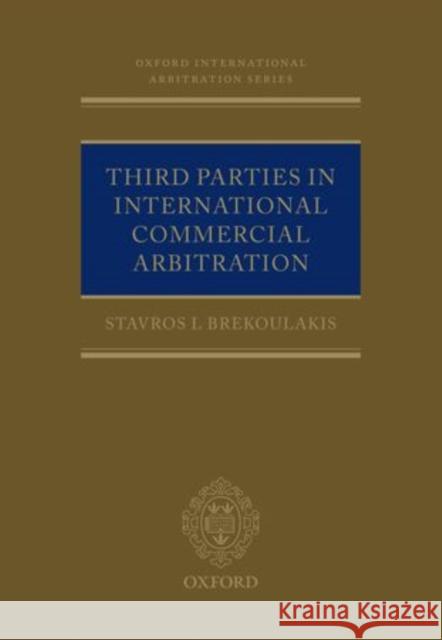Third Parties in International Commercial Arbitration » książka
Third Parties in International Commercial Arbitration
ISBN-13: 9780199572083 / Angielski / Twarda / 2011 / 272 str.
The role of the third party has fast become a pervasive problem in the field of international arbitration, as parties not bound by an arbitration agreement are seen to be excluded from the process, even if they clearly maintain a legal or financial interest in a dispute between other persons who are bound by an arbitration clause. Third Parties in International Commercial Arbitration considers the role of third parties in arbitration agreements and proceedings and in arbitral awards and covers significant theoretical and practical questions. These questions include: which is the proper party in arbitration; whether a tribunal can assume jurisdiction over claims by or against a party that is not designated in the arbitration clause (third-party claims); whether a party can rely on the findings of a previous arbitral award in subsequent proceedings against a third party; and whether a third party to an arbitral award can rely on its findings in proceedings against a party to the award.
Adopting a comparative, international approach, third-party claims are discussed in relation to many areas such as assignment and other forms of transfer; agency (actual and apparent) and representation; third-party beneficiary; incorporation by reference; corporations and partnerships; in guarantees and other security agreements; construction contracts and string contracts; arbitral estoppel; group of companies and alter ego; implied consent and consent by conduct; name-borrowing; third parties claiming through or under an arbitration clause or several compatible arbitration clauses.
The book also discusses issues about arbitral effect (res judicata and issue estoppel) and third parties. In Third Parties in International Commercial Arbitration Brekoulakis consolidates the discussion on issues where reasonable agreement among scholars and tribunals exists, but at the same time proceeds to identify those areas that require further convergence. He examines and classifies all the existing theories and legal bases on third-party claims in clearly defined groups and puts forward a new systematic approach to the discussion to be used as an alternative to the existing theories.











